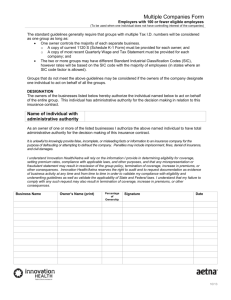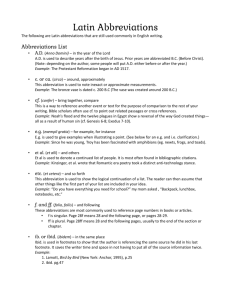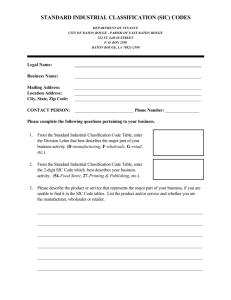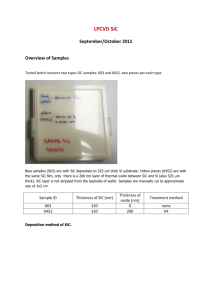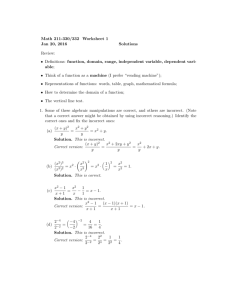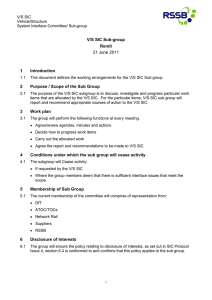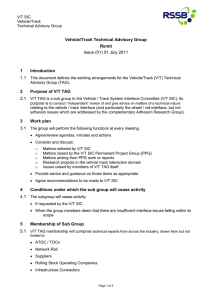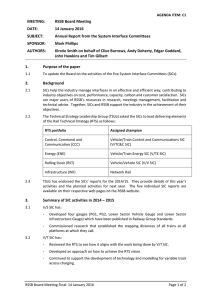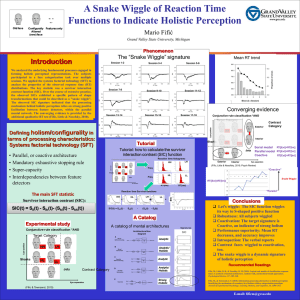Latin abbreviations
advertisement
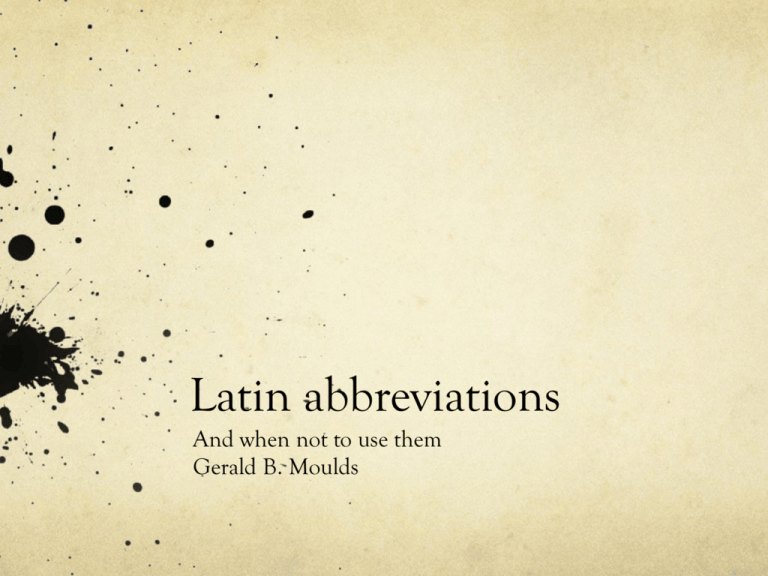
Latin abbreviations And when not to use them Gerald B. Moulds et al. et al. - ET ALII “And others.” Used to shorten a list of names of people. CORRECT: “That paper by Adams, Richards, et al. explains it all.” INCORRECT: “High-calorie desserts like ice cream, cheesecake, chocolate, et al” (should be “etc.”). etc. etc. - ET CETERA “And the rest” or “and so on.” Used to shorten any list, particularly of non-living items CORRECT: “like iron, magnesium, etc.” INCORRECT: “like iron, magnesium, ect.”, “like iron, magnesium, et.c.”, and “like iron, magnesium, etc…” i.e. i.e. - ID EST – “That is” (think “in explanation” or “in other words”). CORRECT: “The delegates were defenestrated, i.e. thrown out a window.” INCORRECT: “The Earth’s crust is made up of various layers of rock, i.e. granite and basalt” (should be “e.g.”). e.g. e.g. - EXEMPLI GRATIA “For example”. CORRECT: “the largest dinosaurs were mostly vegetarian (e.g. the brontosaurus, whose diet was primarily sea kelp).” INCORRECT: “Snipers use concealment, e.g. the art of hiding” (should be “i.e.”) cf. cf. - CONFER “Compare” CORRECT: “Graham describes the end of the Emperor Tiberius' reign as a socially progressive era (cf. Suetonius' The Lives of the Twelve Caesars).” INCORRECT: “Some Christian holidays involve giftgiving (cf. Christmas)” (should be “e.g.”). Other common abbreviations q.v. -QUOD VIDE “Which see” tells the reader that the term can be found defined elsewhere in this work. n.b. - NOTA BENE “Note well”. ca. - CIRCA “About”. Example: The height of the English Renaissance, ca. 1600 A.D. vs. - VERSUS “Against”. Godzilla vs. Mothra Sic - SIC “Thus” Used in brackets next to mistakes from original quotes. “Dear Editor, I hate you’re [Sic] stupid newspaper and all your stupid rapporters [Sic].” Note: Sic is not an abbreviation, it’s an entire word.

